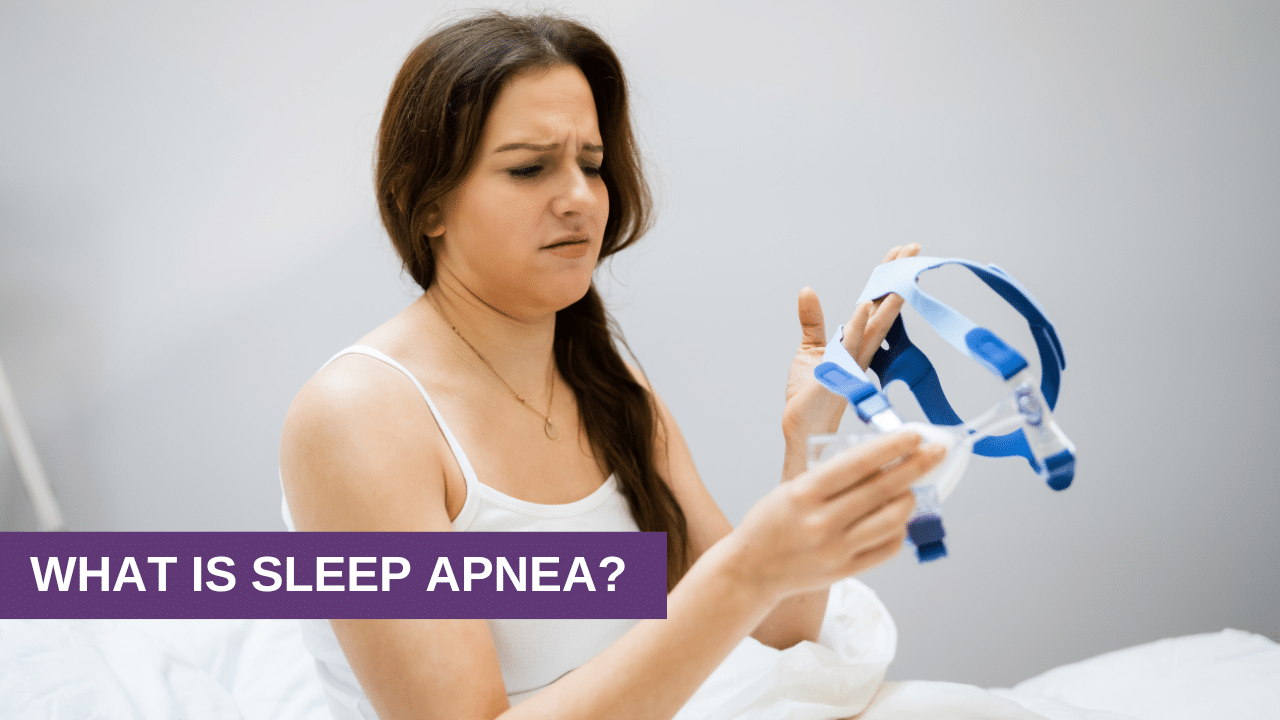What is sleep apnea? Let’s talk about it.
Sleep apnea is a potentially serious sleep disorder in which your breathing stops.
Your hypothalamus controls your sleep cycle and is very sensitive to blood oxygen levels. When you’re apnoeic, your oxygen levels fall which triggers your hypothalamus control of your autonomic nervous system to get you to breathe!
Adrenaline is released by your adrenals to initiate the survival response. Then your hypothalamus releases cortico releasing hormone which triggers your pituitary to release ACTH which tells your adrenals to release cortisol. Chronically high nocturnal cortisol release seriously disrupts your hormone balance leading to systemic inflammation.
You may suspect sleep apnea if you’re tired in the morning, wake up with a dry mouth or a headache. If you have sleep apnea, you have difficulty staying asleep and excessive daytime sleepiness. You may have difficulty paying attention while awake, and you’re irritable. Usually, you don’t notice when you stop breathing while you’re sleeping, but if you sleep with someone else, they may notice and are often sleep deprived as well as you tend to snore loudly.
There are two types of sleep apnea:
Obstructive Sleep Apnea
When the throat muscles relax too much while you sleep and your throat closes which obstructs your breathing. The second type is central sleep apnea, which occurs when your hypothalamus does not send the proper signals to the muscles that control breathing. You may have a combination of both obstructive sleep apnea and central sleep apnea.
People with obstructive sleep apnea tend to carry excessive weight, with extra fat deposits, especially around their neck that obstructs their upper airway. Their neck circumference tends to be much thicker and their airways more narrow. Their tonsils and adenoids can be enlarged. Men are two to three times more likely than women to have obstructive sleep apnea. However, women increase their risk if they’re overweight and the risk rises after menopause.
Obstructive sleep apnea is more common when you’re older.
A family history of sleep apnea may increase your risk. Alcohol, sedatives, or tranquilizers relax the muscles in your throat which can cause obstructive sleep apnea. Smokers have a greater risk of obstructive sleep apnea due to inflammation in their trachea and more fluid retention around their upper airways. If you have chronic nasal congestion from allergies or a deviated septum, you’re more likely to develop sleep apnea.
Some medical conditions are associated with sleep apnea like congestive heart failure, high blood pressure, type two diabetes and Parkinson’s. Polycystic ovary syndrome, hypercortisolemia, a history of prior stroke, or chronic lung diseases like asthma or COPD increases your risk for sleep apnea.
Central Sleep Apnea
It is associated with hypothalamus dysfunction. Middle-aged and older people are more likely to have central sleep apnea and that’s because cellular aging causes hypothalamic microinflammation. Men are more likely than women to have central sleep apnea. If you have a heart disorder, especially congestive heart failure, that increases your risk of central sleep apnea. And if you use narcotic medications or opiates, especially long-acting ones like methadone, that will increase your risk for central sleep apnea. A stroke greatly increases your risk of central sleep apnea.
Supporting your hypothalamus with Genesis Gold® can help reduce microinflammation associated with central sleep apnea and calm the HPA axis associated with obstructive sleep apnea.
Sleep apnea is diagnosed through a sleep study which is usually done at a sleep center by healthcare providers specializing in sleep medicine. During the monitored sleep study, we can see if and how many times and for how long you stop breathing while you’re sleeping.
If you have any questions about sleep apnea, please join me in our Hormone Support Group where I answer your questions live. You can access it by signing up for my free Hormone Reboot Training.
References:



0 Comments